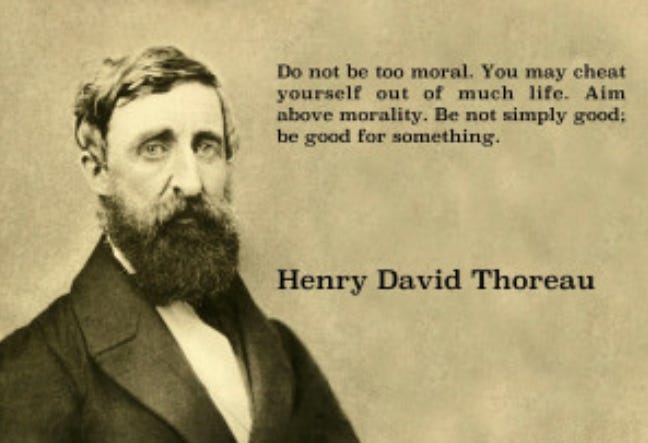David, the youngest of Jesse’s eight boys, was destined to be the family’s sheepherder. Musically gifted, he played the Kinnor, a kind of harp, honing his skills while tending his flock. But sneak into his herd to snatch a lamb, and you’ll have to deal with a fearsome, fearless David. The Biblical story of David tells of a hungry lion making off with a lamb. David’s instinct was to take back the lamb, and when the lion roared back to protect his meal, David grabbed it by his mane and killed the beast.
There’s no suggestion that David thought he was a strong man like Samson. Rather, there is reason to believe that David saw each encounter with danger as a righteous cause. It was his duty. After all, the Almighty determined the outcome, and David learned at an early age to bring that faith into every battle. He grew to believe he had nothing to fear.
Interestingly, the Bible mentions David’s ‘fine appearance and handsome features.” So too Absalom, his son. It is written that “…from the sole of his foot to the crown of his head there was no blemish in him.” Very few other Biblical characters are offered that characterization. Perhaps that is why Michalangelo’s famous statue depicts David as nearly the perfect man. With a suit, he might even be considered for high office today.
For good reasons, children's storybooks about a young David slaying the nine-foot-tall Goliath are heavily sanitized. We kids were not told that David beheaded Goliath and placed his head in his home as a trophy. These were not innocent times.
Goliath was a beast of a Philistine built like a Mack truck, a decent strategist, and a loud, obnoxious heckler. He goaded the tribe of Judah for days, daring anyone to take him on—man-to-man in a winner-take-all match. King Saul, suffering from bouts of serious doubt, likely due to his diminishing faith, was paralyzed with fear. He had no match for Goliath- physically or spiritually.
Young David was tending his flock when he heard of the stand-off with Goliath and the Philistines. Jesse asked him to go to the battlefield to check on his brothers serving with King Saul. Hearing of the standoff with Goliath and believing God was with him, he rushed to the side of King Saul, pleading to take on the giant. The gathered chuckled and likely asked each other, “Who does this young man think he is?” Only after telling of his killing of a lion did King Saul agree to send David against Goliath. David felled the giant with one stone and then presented his decapitated head to the king.
Others, like David, who appear to have no fear and a willingness to risk all for a righteous cause, exude a nearly unreal self-assuredness. The less confident but self-righteous find this unearthly confidence and lack of self-doubt off-putting—maybe even maniacal. The impulse toward envy was on full display during David's time.
But most Judahians found David an inspiring and worthy leader and grew to love and admire him. The more popular he became, the more the King's court loathed him. King Saul felt particularly threatened and conspired to kill David in battle- the preferred method for offing potential political threats.
David’s family was deeply dysfunctional. There were reports of incest and abuse. Read some of the Psalms, and you’ll read the words of a lamenting David on the run pleading with the Almighty. His son, Absolom, had David flee the palace in fear of his life. He spent years as a nomad in the desert, where he did some of his best writing.
David, it turns out, was as fallen as you and I. His list of indiscretions is long and impressive. He was a womanizer and an adulterer. He coveted another man’s wife. To marry her, he had him killed in a battle. He did these things with the full benefit of the Ten Commandments and in contrast to his robust faith. Deeply remorseful, God forgave him.
We humans struggle with that part of God’s nature- to forgive the unforgivable. For centuries, the sins of David have given theologians pause. With our obsession with equity and justice today, we operate from a locus of control regarding what is forgivable and what is not. We believe that sin exists within a hierarchy- every sin sits on a scale from bad to very bad. Does God differentiate between the sin of stealing and the sin of coveting? Is murder the most grievous sin? Is there such a thing as an unforgivable sin?
Perhaps secularists, those who see ‘sin’ as a religious construct rejecting its very existence, have an easier time placing human tendencies toward moral shortcomings into buckets ranked from minor to severe. Without the admonition and complexity of ‘forgiveness,’ they are free to hold tight to their moral judgments. For them, our identity is largely based on our misadventures- our sins. From there, it is perhaps easy to arrive at the ancient corrosive emotion of ‘hatred’- a soul-sucking loathing that knows no end.
Naturally, we tend to judge King David by today’s moral and cultural standards. It isn't easy to transpose the cultural differences of 1000 BC to 2024 AD. But even more difficult is to read that God considered King David a ‘man after His own Heart.’ The story of David offers us a glimpse into God's nature—God is able to see past the ‘sin’ and into the heart. This insight possibly inspired the cliche ‘Hate the sin. Love the Sinner.’
The story of King David (1040-970 BC) is perhaps the Old Testament's most colorful. It is an interesting, if not a troubling contradiction, to read David’s most famous Psalm, Psalm 23, against the backdrop of his many moral shortcomings. To read his words, “Ye tho I walk through the valley of death, I will fear no evil,” one must sense his ‘heart’- the heart God found favor in.
Today, we have those who prefer to define their fellow humans by their failings and shortcomings. They troll, cancel, and create new adjectives to marginalize their ideological enemies. No tribe is safe from this tendency.
Within the Christian tribe today are those animated by hatred hiding behind intellectual smugness. They choose to belittle their fellow believers by creating labels. Suppose you believe a more just nation is sympathetic to Christian principles. According to them, you are likely an authoritarian, an oppressor, and a semi-mad supporter of a particularly loathsome politician- you are a Christian Nationalist.
Our political elites in this country enjoy creative label-making. They label their ideological enemies with terms like ‘deployable,’ ‘bitter clingers to guns and Bibles,’ and now ‘Christian Nationalist’- all in a sad attempt at creating division while childishly seeking a sense of moral high ground. In their human hubris, they believe they have insight into both the nature of man and God- so they offer some meaningless psychobabble as their theories.
I believe King David's story is instructive to our tumultuous times. It is a story of great hope: that a man as imperfect as David still found favor with God. God not only admonished us to ‘forgive’ but, by example, showed us what it means to ‘love’ the sinner. If loving the fallen is not possible, then love is not possible.
Amazingly, we’re already in the midst of another election cycle, and there have been many of them since the earth benefited from David's life. Most of history’s leadership changes have not come about through a democratic process but from generally haphazard means that are nearly always bloodier. We live in ‘blessed’ times.
Once again, we are asked to vote for either of two choices- both bubbling with imperfections like King David. Please vote. Have a great weekend.






